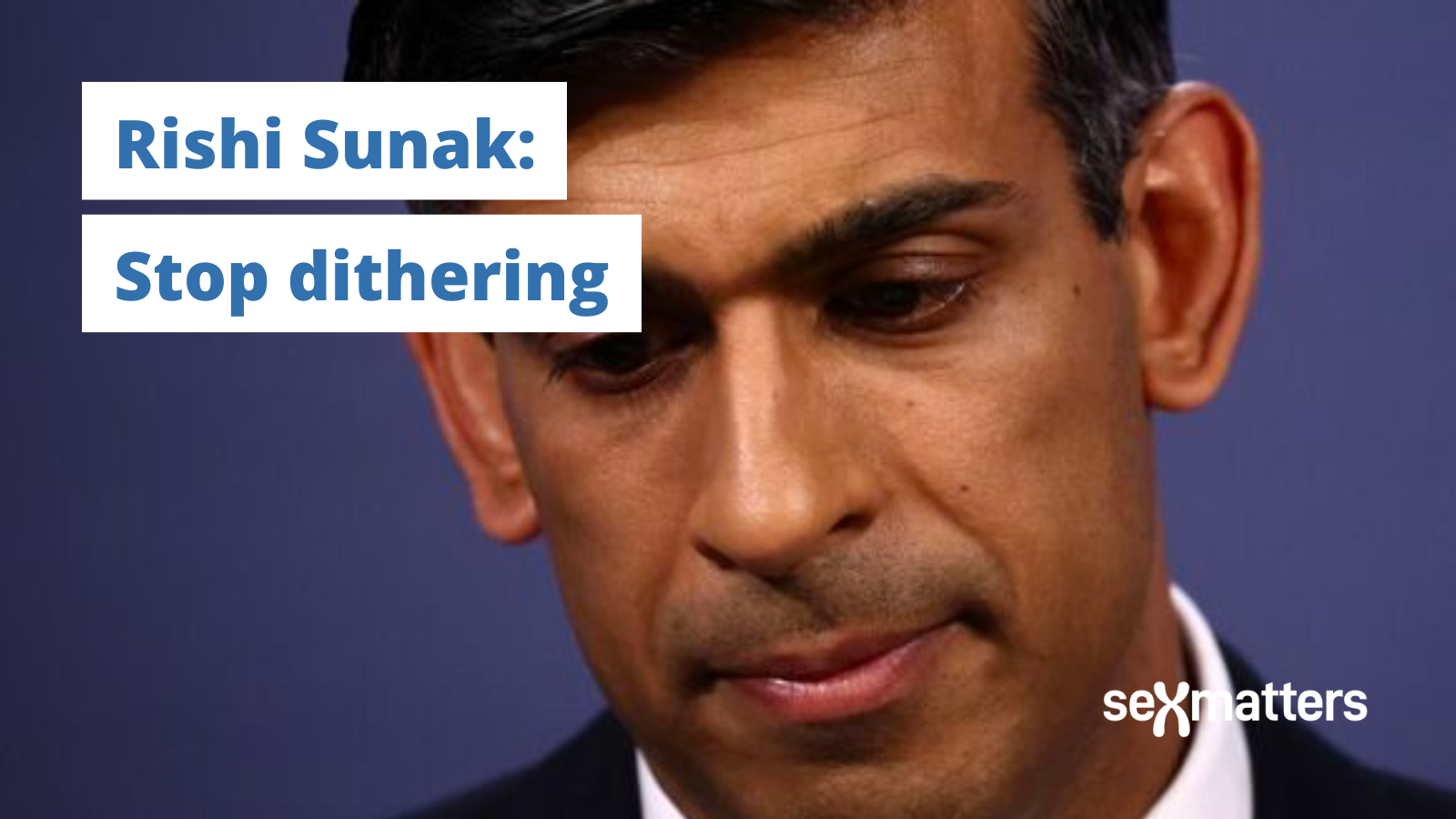Why is the government getting in such a mess over the schools guidance?

It has been reported that Rishi Sunak is planning to delay issuing trans guidance for schools after the Attorney General and government lawyers warned that plans to strengthen it “would be unlawful”.
What is it that the Attorney General thinks is unlawful?
The sticking point is whether children “should be allowed to socially transition with the consent of their parents” or possibly with a doctor’s supervision. The Times states that this “social transition” means “choosing another pronoun or name and wearing the uniform of the opposite sex”.
The Times said the government commissioned legal advice from the Attorney General “into whether there could be an outright ban on social transitioning in schools”.
This is simply the wrong question.
What should the guidance say?
The guidance does not need to ban or encourage schools from undertaking the amorphous concept of “social transition”. What it needs to do is remind schools of their responsibilities:
- do record every child’s sex accurately
- do remember that this cannot change
- don’t treat girls and boys unequally or hold them to outdated gender stereotypes
- do communicate and enforce sex-based rules (such as about changing rooms, toilets and sports) clearly
- do safeguard – don’t lie to children about sex or keep secrets with them; don’t compel children to lie.
We have said all this in our schools guidance.
Is it possible to do any of this while at the same time calling some girls boys and some boys girls, and giving them the expectation they can be subject to different rules? No. So don’t adopt a policy of doing this.
Children can “choose another pronoun” insofar as it is something they do among themselves or within their family, but they cannot expect the school to lie about their sex or compel other children to lie. This means schools should use clear sex-based language. When schools says “boys” they mean all male children, and when they say “girls” they mean all female children. And it is ordinary English to refer to boys as “he” and girls as “she”.
Children are generally allowed to change their “known as” name but this does not mean they have changed sex.
Schools should decide on a whole-school approach to uniform (which can be gender neutral or traditional) and stick to it.
There is no need for new legislation to allow simple clear guidance
Children may have the protected characteristic of “gender reassignment” in the Equality Act, but this does not mean that children who adopt a transgender identity must be treated differently from other children. It just means that they must not be discriminated against by the school, as Section 85 of the Equality Act states:
(a) in the way it provides education for the pupil
(b) in the way it affords the pupil access to a benefit, facility or service
(c) by not providing education for the pupil
(d) by not affording the pupil access to a benefit, facility or service;
(e) by excluding the pupil from the school
(f) by subjecting the pupil to any other detriment.
In other words, a child who is gender-questioning or who adopts a transgender identity should be treated in the same way as other children.
Calling a boy a boy and “he” and a girl a girl and “she” is not a detriment. Not allowing them to use opposite-sex facilities is not a detriment.
Sunak should stick with his commitment to publish the guidance
He should make it simple and clear.
Going with either the DfE’s compromise approach of allowing some children to “socially transition” but only in some limited ways, or trying to add further layers of complication with waiting periods and medical gateways, will tie schools up in confusion and conflict, children and parents in uncertainty and negotiation, and the DfE in years of legal battles.
It is not necessary.
What Rishi Sunak should do now is be brave and issue clear guidance.
